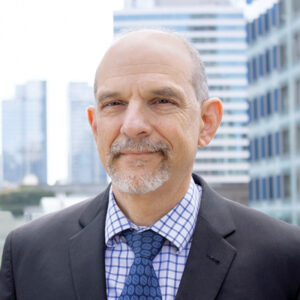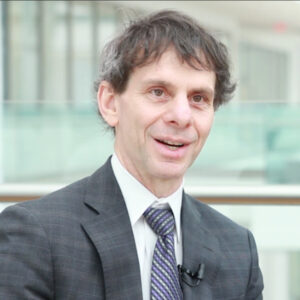This story is part of The Cancer Letter’s ongoing coverage of COVID-19’s impact on oncology. A full directory of our coverage is available here.
While the National Clinical Trials Network (NCTN) groups remain open for business during the pandemic, it’s not business as usual. For good reason, clinical trials are taking a backseat to clinical care. Leadership and members themselves face significant challenges treating oncology patients, as attention and resources are diverted to minister to those with COVID-19.
Some are quietly creating formulas to consistently determine who gets chemotherapy, tumor resection, irradiation, or transplant. It’s an unprecedented time. But for now, we plan to continue to treat patients with cancer who are already on study, and as circumstances permit, to accrue new patients to existing trials, and even to continue to open new, high-priority studies.
Our enrollment levels began to decline during the week of March 23, and we expect a decrease in overall accrual to continue for the duration of this pandemic. Some of our key member institutions cannot currently conduct research or have to limit clinical trial enrollment to those patients likely to get an “immediate benefit.”
No treatment or population science trial has completely closed due to coronavirus. However, a few studies have been suspended—one NCTN trial due to a drug shortage; one due to concerns over patients coming in for infusion of possible placebo; and three National Community Oncology Research Program (NCORP) studies due to disruptions in cancer screening and cancer care delivery.
In the NCORP cases, we felt we could not collect reliable data at this time, so good science demanded the suspensions. One major example: Work has halted on ECOG-ACRIN Cancer Research Group‘s landmark Tomosynthesis Mammographic Imaging Screening Trial, or TMIST, which compares 2D and 3D mammography to determine the best way to detect early breast cancers.
We have spent the last month reacting and adapting. The Alliance for Clinical Trials in Oncology, the Children’s Oncology Group (COG), and SWOG Cancer Research Network have changed their semi-annual face-to-face meetings to virtual spring conferences that can be conducted via video conference, while the Canadian Cancer Trials Group (CCTG) and ECOG-ACRIN cancelled their spring meetings altogether.
We’ve completely transitioned employees to work from home, all the while maintaining staffing and keeping trial operations going.
NCI relaxes rules during crisis
With help from the NCI, which has relaxed some rules during the crisis, we’ve been allowing member sites to suspend audits, and we have pushed back data submission deadlines. We now allow telehealth visits or delays for in-person appointments called for under protocols.
With help from the NCI, which has relaxed some rules during the crisis, we’ve been allowing member sites to suspend audits, and we have pushed back data submission deadlines.
Certain oral agents are being shipped directly to patients’ homes via trackable methods, such as FedEx. All of these moves can potentially free up physicians and keep oncology patients out of our hospitals and clinics.
In addition, the network groups have also developed special forms for sites to record protocol deviations or note a COVID diagnosis for a patient on study. Some groups are reviewing active protocols to see if there are ways to make changes that can save members time, while maintaining trial integrity. For example, the FDA is allowing alternate dose schedules for certain drugs.
The groups are similarly exploring less frequent drug administration and spaced-out imaging, which we hope to adopt without going through the normal lengthy and sometimes bureaucratic protocol amendment process.
To accommodate sites that may become overwhelmed with COVID-19 care, or to protect patients who can’t or won’t travel for their treatments, the NCI’s Cancer Therapy Evaluation Program (CTEP) is allowing local physicians to aid trial providers. Local doctors can administer standard therapies, conduct exams, and run the customary laboratory tests called for on the studies—as long as they follow protocol rules and get agreement from a treating physician approved to participate in the trial. We applaud the NCI for making this unprecedented allowance, and for doing it so quickly.
Communication is mission-critical during a crisis. That’s why we’re reaching out directly to member sites with guidance memos. The Alliance created a members-only coronavirus resource page, and CCTG, NRG, and SWOG created open access pages, which include information for sites, patients, and the public.
SWOG is also maintaining an online clearinghouse with an up-to-the-minute list of labs and biobanks still open and able to process tissue and other samples required by its protocols. ECOG-ACRIN and CCRG created special email addresses that members can use to ask COVID-related trial questions, while COG produced a guide for parents with children, teens and young adults with cancer, explaining how they can protect their kids from COVID-19. The guide is available in English, Spanish, and French.
We are proud of—and humbled by—the response of our members. From New Orleans to Detroit, New York City to San Francisco, the physicians, nurses, and clinical site staff in our groups are on the frontlines of healthcare during this public health emergency. Not only are they continuing to care for oncology patients, often under challenging conditions, but some are caring for patients with COVID. Some have switched their focus to clinical trials testing new antiviral therapies, lending valuable expertise from the oncology research community to the search for life-saving treatments.
CCC19: COVID-19 and Cancer Consortium
Just two weeks after the first COVID-19 death was recorded in the United States, a group of cancer physicians and scientists launched the COVID-19 and Cancer Consortium (CCC19), a national and soon-to-be international research project.
CCC19 uses an online form to collect de-identified, HIPAA-exempt data from oncology patients with COVID-19. The online survey was created at Vanderbilt University Medical Center and approved at the Fred Hutchinson Cancer Research Center and a number of other cancer centers and hospitals.
The survey collects patient demographics, clinicopathologic factors, coronavirus diagnosis and treatment details, and health care provider information. Patients, and their outcomes, can be tracked over time.
By collecting data now, we can conduct meaningful research later. Scan the roster of the CCC19 steering committee, and the project’s list of collaborators, and you’ll see a number of NCTN and NCORP researchers who have led our trials for years. We applaud these members, and the leadership of Vanderbilt, Fred Hutch, Dana-Farber, MD Anderson and more for their fast, forward-thinking efforts.
Lessons learned from the CCC19 project, as well as from teleconferencing and telemedicine, will help us create and run better operations systems and manage smarter, faster trials later. The concept itself is not unique. Medical lessons learned on the battlefield have often led to major improvements in civilian medicine. We are, surely, now in a war. We pledge to take what we learn and use that knowledge to better serve our members and the public.
After six decades of clinical research, the network groups have built a massive scientific enterprise that includes large data sets, specimen banks, and a wealth of shared expertise. We have improved and lengthened lives, and even increased cure rates, in a number of childhood and adult malignancies.
Medical lessons learned on the battlefield have often led to major improvements in civilian medicine. We are, surely, now in a war. We pledge to take what we learn and use that knowledge to better serve our members and the public.
For now, our committees continue to discuss new research ideas, protocols are being written and approved, data are being analyzed and manuscripts prepared. Since most CTEP and Division of Cancer Prevention functions have also been transitioned to remote participation, communications have been excellent and momentum maintained. Studies, even if not immediately activated, are being moved through regulatory processes at sites to ensure their immediate opening upon lifting of various embargos.
Decreasing the burden of disease and human suffering largely are achieved through clinical trials, even during the COVID era. Along with new studies to test COVID vaccines and drugs, network oncology research will continue.
Now, perhaps more than ever, this work is vital.
The authors acknowledge Wendy Lawton, SWOG Cancer Research Network communications director, for aid in writing and gathering background data.





















